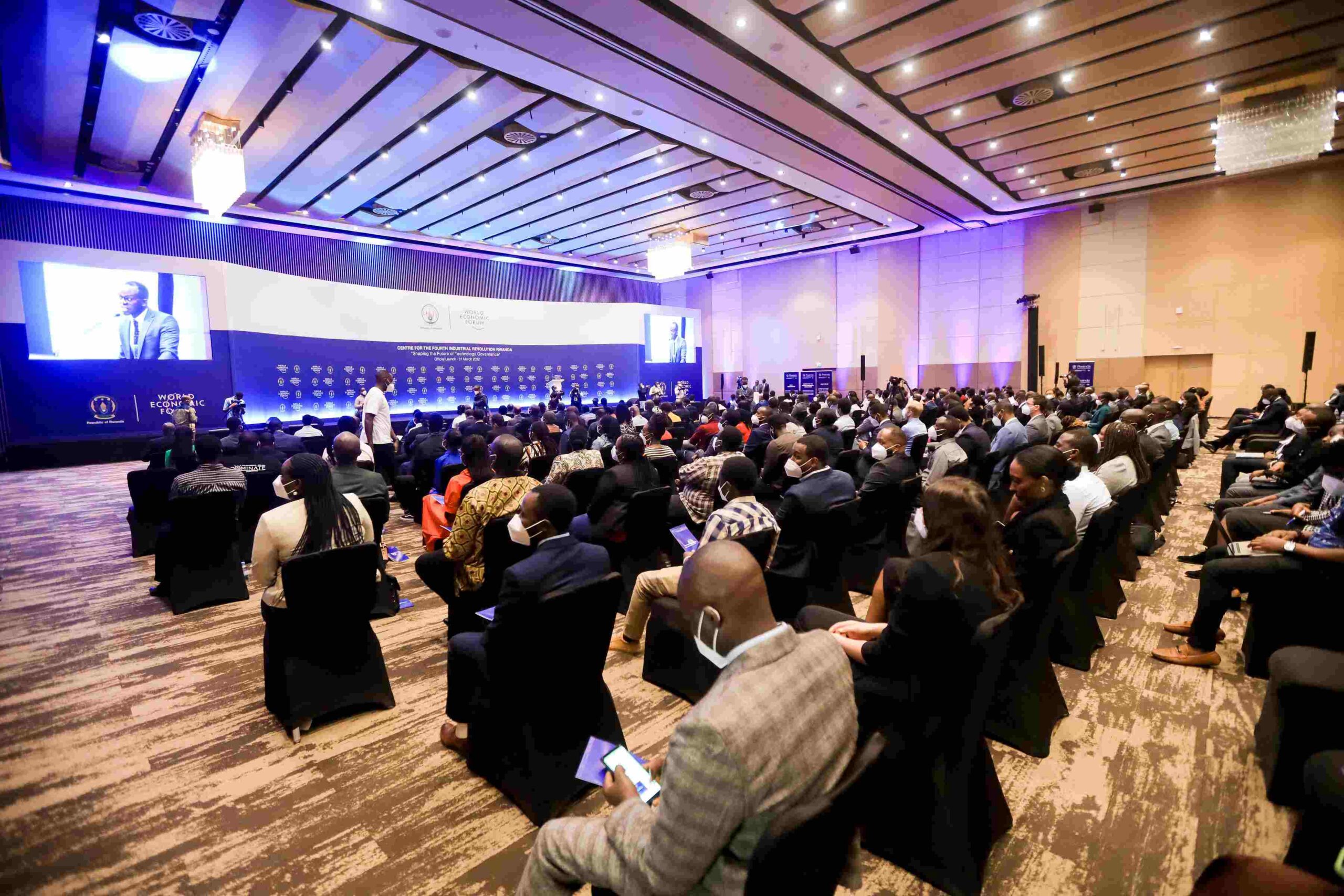THE TRANSFORMATIVE POWER OF ARTIFICIAL INTELLIGENCE IN RWANDA’S TOURISM: A DEEP DIVE
- update
- 0 Comments
In the heart of Africa, Rwanda, often referred to as the “Land of a Thousand Hills,” is making waves not just for its breathtaking landscapes and wildlife but also for its rapid technological advancements. One of the most promising intersections in this journey is the fusion of Artificial Intelligence (AI) with the country’s burgeoning tourism sector.
The sector has assumed a pivotal role as the largest source of foreign exchange earnings, with projections indicating a remarkable growth rate of 40% from 2015 to 2022. In 2022 alone, the sector contributed an impressive USD 455 million to the national coffers, underscoring its significance in the economic landscape.
As we’ve delved into the synergies of Artificial Intelligence (AI) and tourism in Rwanda, we’ve discovered a transformative force able to drive growth and elevate the traveler’s journey.
“Rwanda’s tourism sector can capitalize on the potential of AI to enhance visitor experiences, positioning the country as a premier ecotourism destination in Africa. AI technology can revolutionize how we attract, serve and engage with tourists, making Rwanda a top choice for travelers seeking an exceptional experience.” – Michaella Rugwizangoga – Chief Tourism Officer at the Rwanda Development Board
THE DAWN OF AI IN TOURISM
To truly appreciate the impact of AI on tourism, it’s essential to understand its roots. Artificial Intelligence, at its core, is about creating machines that can think and act like humans. From its early days in the mid-20th century, when it was a mere concept in science fiction, AI has come a long way. Today, it’s a reality, driving innovations across sectors, from healthcare to finance and tourism.
CRAFTING PERSONALIZED TRAVEL EXPERIENCES
Picture this: You’re all set to embark on an adventure to Rwanda, a country renowned for its breathtaking landscapes and vibrant culture. As you prepare for your journey, you have a remarkable companion by your side—a virtual assistant powered by the wonders of AI. This intelligent AI-driven assistant is set to revolutionize the way you experience Rwanda, tailoring your travel itinerary precisely to your preferences and desires.
One of the highlights of your trip is the thrilling adventure of tracking gorillas in the lush and awe-inspiring Volcanoes National Park. Your AI assistant, armed with a wealth of information and insights about the park, ensures that this experience is seamlessly integrated into your travel plans. Whether you’re a wildlife enthusiast, an adventure seeker, or someone simply looking to connect with nature, the AI system will create an experience that resonates with you on a deeply personal level.
But the magic doesn’t stop there. Imagine gliding peacefully on the serene waters of Lake Kivu, with the AI assistant orchestrating the perfect boat ride for you, offering you a front-row seat to Rwanda’s natural beauty. Your journey is not just a pre-packaged tour; it’s a personalized odyssey that caters to your individual interests and preferences, ensuring that you experience Rwanda in a way that is uniquely yours.
In addition to your virtual travel companion, AI-driven chatbots on travel websites are another game-changer for your Rwandan adventure. These chatbots are designed to assist tourists in real time, making your trip planning and exploration smoother and more enjoyable. With the ability to respond to your queries, provide expert recommendations, and even facilitate the booking process, they offer unparalleled convenience and accessibility.
What’s more, these AI chatbots break down language barriers effortlessly, thanks to their multi-language capabilities. You can communicate and seek assistance in the language of your choice, ensuring that language is no longer an obstacle when exploring Rwanda’s beauty and wonder.
Yes, this is what AI could offer to Rwanda and travelers—an innovative and tailored journey that transforms exploration into a truly individualized adventure.
OPERATIONAL BRILLIANCE BEHIND THE SCENES
For tourism operators in Rwanda, AI is nothing short of a game-changer. Predictive analytics, a subset of AI, allows businesses to forecast booking patterns, helping them optimize pricing strategies and maximize revenue.
Predictive analytics leverages historical data and algorithms to provide invaluable insights into future trends and customer behavior.
In the context of Rwanda’s tourism sector, this means that hotels, tour operators, and various stakeholders can harness this technology to optimize pricing strategies, all while ensuring maximum revenue. This newfound capability enables businesses to make informed decisions that not only enhance their profitability but also extend the best possible deals to tourists.
Hotels, for instance, can fine-tune their rates based on expected demand, creating a win-win situation for both the business and the traveler. Tour operators can strategically schedule their offerings, ensuring a more efficient allocation of resources and, as a result, better value for their customers.
Beyond the realm of pricing strategies, AI also plays a pivotal role in streamlining back-end operations. From managing inventory within hotels to optimizing supply chains for tour operators, artificial intelligence is the unseen force that ensures the seamless functioning of the entire tourism ecosystem.
In the context of hotels, AI systems can automatically manage room inventory, helping businesses avoid overbooking or underbooking, a problem that can lead to guest dissatisfaction and revenue loss. This level of precision not only ensures customer satisfaction but also contributes to a more efficient and profitable operation.
Similarly, tour operators can optimize their supply chains, ensuring that every aspect of a trip, from transportation to accommodations, perfectly aligns with the traveler’s itinerary. This translates to smoother logistics, reduced operational costs, and a heightened overall tourist experience.
CHAMPIONING SUSTAINABILITY AND CONSERVATION
Rwanda’s commitment to conservation and sustainability is commendable. Here, AI finds yet another crucial application. Through AI-driven drones and cameras, authorities can monitor wildlife, ensuring their protection and reducing human-animal conflicts. This is especially vital in national parks, where the balance between tourism and conservation is delicate.
Rwanda’s commitment to conservation and sustainability is commendable. Here, AI finds yet another crucial application. Through AI-driven drones and cameras.
These technological marvels have found a critical role in safeguarding the country’s wildlife and minimizing conflicts between humans and animals. These AI-powered tools play a pivotal role in national parks, where the delicate balance between tourism and conservation is paramount.
The use of AI-driven drones and cameras enables authorities to closely monitor wildlife populations. With real-time data and analytics, they can ensure the protection of endangered species and keep a vigilant eye on the ecosystem’s overall health. This proactive approach helps in reducing incidents of human-animal conflicts, a crucial aspect of wildlife preservation.
Through remote monitoring, they can respond swiftly to any disturbances, further contributing to the safety of both animals and tourists.
Additionally, in the realm of sustainability, AI can analyze data on energy consumption and waste management in tourist facilities. This data-driven approach ensures that Rwanda’s tourism sector grows while keeping its environmental footprint in check.
INSIGHTS FROM THE WTTC SUMMIT IN KIGALI
The recent WTTC Summit in Kigali was a melting pot of insights and discussions on the role of AI in tourism. Key takeaways included the emphasis on personalization in the hospitality sector, as highlighted by Julie Shainock from Microsoft. Nelson Boyce from Google discussed the transformative role of AI in advertising, especially in the context of evolving privacy concerns. Mark Antipof from HBX Group underscored the importance of data-driven decision-making and AI’s profound comprehension of data analysis. The summit echoed the sentiment that AI’s influence on the tourism industry is enduring and transformative.
The recent WTTC Summit in Kigali was a melting pot of insights and discussions on the role of AI in tourism. One of the standout takeaways from the summit was the overarching emphasis on personalization within the hospitality sector. This aspect of AI was particularly spotlighted by Julie Shainock, representing tech giant Microsoft. Her insights shed light on how AI can be harnessed to create tailored, unique experiences for travelers. From personalized recommendations to customized service delivery, AI’s role in the realm of hospitality was vividly brought to the forefront.
Nelson Boyce, a notable figure from Google, delivered a thought-provoking presentation on the transformative role of AI in advertising, a topic that has gained heightened significance in the context of evolving privacy concerns. In an age where data protection and privacy are paramount, Boyce underscored the potential of AI to strike a balance between personalized advertising and safeguarding user privacy. This duality was a central theme in his discussion, resonating with the evolving landscape of digital marketing.
Mark Antipof, a representative of HBX Group, offered valuable insights into the world of data-driven decision-making. His presentation highlighted AI’s profound understanding to data analysis, revealing patterns and trends that might otherwise remain hidden. The power of AI in deciphering complex datasets and translating them into actionable insights was made abundantly clear. This data-driven approach is poised to revolutionize how businesses in the tourism industry make strategic decisions.
As the summit came to a close, a resounding sentiment emerged among speakers alike: AI’s influence on the tourism industry is not just a fleeting trend, but a profound and enduring transformation. The amalgamation of these insights and discussions at the WTTC Summit in Kigali underscored the significant and lasting impact that AI is set to have in shaping the future of tourism, making it a pivotal milestone in the industry’s ongoing evolution.
NAVIGATING THE CHALLENGES
While the potential of AI in Rwanda’s tourism is vast, it’s not without challenges. Among these challenges, two significant ones stand out as paramount: data privacy and algorithmic bias.
First and foremost, the issue of data privacy takes center stage. In their quest to provide personalized and data-driven experiences, AI systems inevitably collect and analyze vast amounts of data. This data, often sensitive and personal in nature, requires the utmost protection. Ensuring that the data of both tourists and locals remains secure is not just a compliance requirement but a fundamental ethical responsibility.
The balance between extracting insights and respecting individual privacy is a delicate one that must be meticulously maintained. Rwanda, like many nations embracing AI, must invest in robust data protection measures and transparency to build trust among tourists and locals.
Additionally, there’s the challenge of algorithmic bias. It’s essential to recognize that AI models are only as good as the data they are trained on, and biases in data can perpetuate within the algorithms themselves. To ensure the fairness and inclusivity of AI recommendations and decisions, it is crucial to scrutinize AI models for any latent biases. The goal is to guarantee that the recommendations provided by AI systems are equitable and considerate of the diverse range of tourists who visit Rwanda. This involves a commitment to ongoing monitoring, transparency, and a proactive approach to mitigating any identified biases. By doing so, Rwanda can present itself as a welcoming and inclusive destination for all travelers.
LOOKING AHEAD: THE FUTURE OF AI AND TOURISM IN RWANDA
The fusion of AI and tourism in Rwanda is still in its nascent stages, but the potential is immense. As technology continues to evolve, and as Rwanda continues to position itself as a premier tourist destination, AI will undoubtedly play a pivotal role.
The marriage of AI and tourism in Rwanda is a testament to the country’s forward-thinking approach. It’s a journey of crafting unparalleled tourist experiences, ensuring operational excellence, championing conservation, and navigating challenges with an eye on the future. As we look ahead, one thing is clear: the future of tourism in Rwanda is not just tech-driven; it’s AI-driven.





